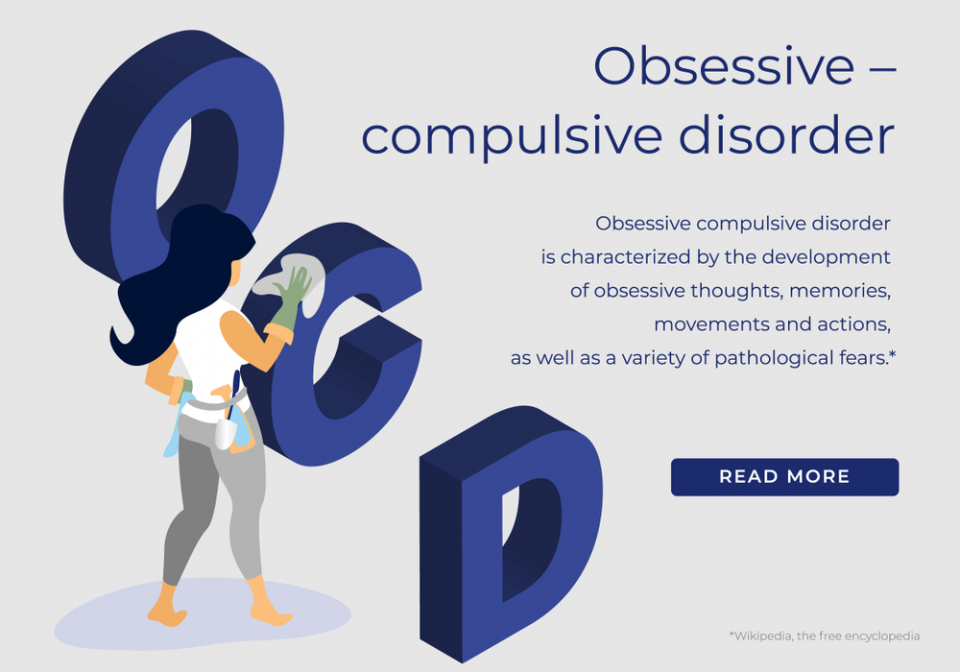You may have heard about OCD and we often joke about it, saying a person has OCD if he or she is extra particular about something. However, Obsessive Compulsive Disorder (OCD) is an actual mental disorder where a person, usually a teenager, has strange and disturbing thoughts, urges, images that keep coming into the mind and results in a lot of discomfort or panic. The way the child/teen tries to combat this is by exhibiting certain mental actions or recurrent behaviour. The compulsions mostly take on a ritualistic approach, for example, straightening each tassel of a carpet and counting to ten each time. OCD assessment is necessary for proper diagnosis and to determine the right course of treatment.
OCD – Signs and Symptoms
OCD involves a person getting strange and anxious thoughts like the following:
- What happens if I fall ill?
- If I fail this examination, I will not have any future
- Am I responsible for what is happening?
- Do I have a contagious disease that can infect everyone around me?
- I have to know what is wrong with me!
There are also physical feelings that an OCD patient can experience, like the following:
- Heart beating very fast
- Shallow breathing
- Stomach aches
- Dizziness
- Headaches
- Feeling detached from their bodies
- Muscle tension
- Shortness of breath
OCD can also trigger emotions like:
- Anger or rage
- Shame
- Guilt
- Anxiety or worry or fear
- Sadness
There are also specific behaviour patterns associated with OCD. For example:
- Not wanting to touch objects like knobs, door handles, and others, because they may have germs and may make the person ill
- Asking a parent or guardian to buy extra toilet supplies like soap or toilet paper, even when the supplies are more than full
- Making everyone in the house wash hands before sitting down to eat, even if everyone has already done that
- Washing body and hands too much for the fear of germs
- Confirming with a parent or guardian that no mistake has happened, for the fear of being wrong or guilty
- Keeping on repeating certain phrases several times
- Unsure whether something has been done in the correct way or not
OCD Assessment Questions
If you want to ascertain whether you have OCD, before you confirm with the psychiatrist, here are some questions you can ask yourself:
- Do you ever have recurrent thoughts that make you very anxious?
- Do you experience unwanted thoughts about taboo subjects?
- Do you have difficulty in controlling compulsive tendencies and errant thoughts?
- Do you do things like counting, checking, cleaning in a ritualistic way that provides you some relief from anxiety or errant thoughts?
- Do you ever have a fear of germs and infection and become obsessed with cleanliness?
- Do you often want to constantly check if something has been done or arrange things around you?
- Do you spend at least one hour each day having intrusive thoughts or planning ritualistic behaviour?
- Is your work life, home life, or relationships getting affected by the way you think or your obsessions or behaviour?
If you are nodding your head “yes” to most of these questions, then it is time to visit a psychiatrist and get your formal assessment done.
OCD Assessment by a Psychiatrist

When you go to a psychiatrist for OCD assessment, here is how the medical professional manages the patient:
- Create a therapeutic rapport with the patient
The psychiatrist will adjust his or her communication style according to your specific needs and provide you with the options for treatment. Your medical and cultural history will also be taken into account. - Analyse the symptoms
Many psychiatrists use a method known as DMS-IV-TR for diagnosing mental disorders as well as OCD assessment questions and use both to differentiate it from other disorders. - Rate the severity of symptoms and how well the patient is able to function
There are various rating methods that can be applied. - Improve patient’s and other’s safety
It is very important to assess the risk factors and whether the patient can be dangerous to himself or to others. - Set up a treatment plan
After completing the assessment, the final step is to have a treatment plan in place.
OCD assessment is a step to understand if a person has OCD or not, so if you suspect it in yourself or someone you know, do not delay but visit a psychiatrist as soon as you can.

